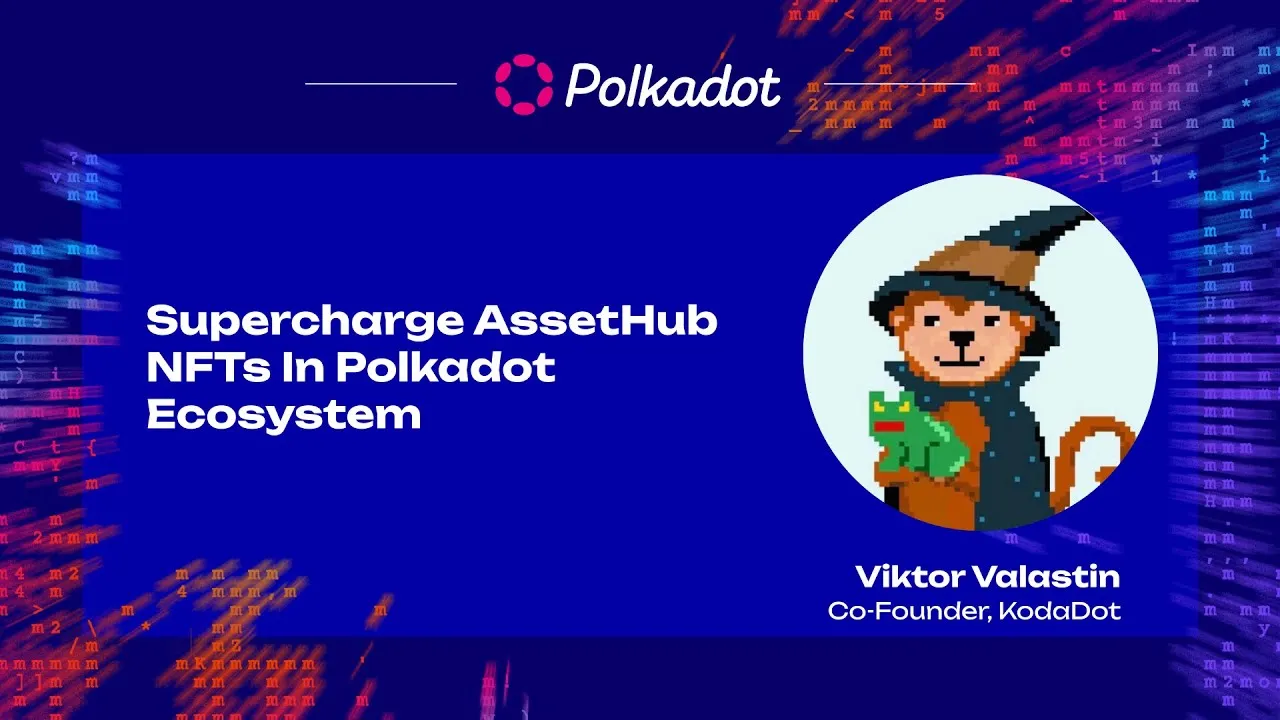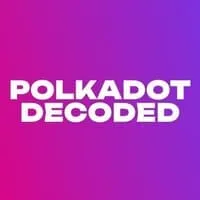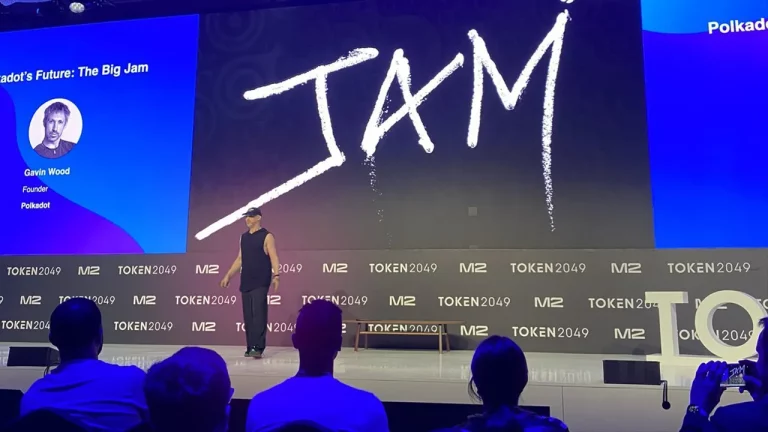In the dynamic world of blockchain technology, the Polkadot ecosystem stands out for its innovative solutions and interoperability. Viktor Valastin from KodaDot recently delivered an insightful tech talk on “Supercharge AssetHub NFTs in Polkadot Ecosystem“, where he delved into the advancements and advantages of using AssetHub for NFTs.
What is KodaDot?
KodaDot is an open-source NFT marketplace within the Polkadot ecosystem, designed to be multi-chain powered. This means it operates seamlessly across various chains like Polkadot, Kusama, and others running on the EVM. KodaDot is technology agnostic, allowing integration with different metadata standards such as OpenSea and Rarible. The platform is bounty-based, encouraging developers from other ecosystems to contribute and earn DOT.
Current State of NFTs in Polkadot
The Polkadot ecosystem supports multiple NFT standards, including NFT Pallet, Unique Pallet, and ORML NFT. These standards are integrated into various parachains like Basilisk and Astar, providing runtime logic that enhances performance compared to traditional smart contracts. Smart contracts are still used for their ease of extension, but Polkadot’s unique approach offers faster execution and broader capabilities.
Advantages of Polkadot AssetHub
AssetHub is a system chain within Polkadot, using DOT as its native currency, which eliminates the need for additional tokens and external liquidity. It is a full-featured NFT pallet offering several off-chain utilities, atomic swaps for trading NFTs, and compatibility with XCM NFTs. The platform supports collection and item metadata, custom attributes, and granular permissions, all natively implemented.
Special Features of AssetHub
AssetHub boasts unique features such as specific minting settings, off-chain utilities for pre-signing transactions, and seamless migration from Kusama ordinals. One notable capability is atomic swaps, allowing users to trade NFTs directly or with a surcharge, thus facilitating a new market dynamic where NFTs can be swapped or traded with added flexibility.
AssetHub Overcoming Challenges
Despite its robust features, AssetHub faces challenges like user experience barriers, existential deposits, high fees, and the need for user education. The platform is actively working on reducing fees and improving the onboarding process for new users, including better wallet integration and automated teleportation of assets.
Polkadot AssetHub Future Prospects and Innovations
KodaDot aims to expand the customization options for NFTs, including editable metadata and enhanced distribution channels. The platform is leveraging new social protocols like Farcaster to introduce interactive features and broaden the reach of AssetHub NFTs.
Conclusion
KodaDot and AssetHub are at the forefront of NFT innovation within the Polkadot ecosystem. By addressing current challenges and introducing unique features, they are poised to transform how NFTs are created, traded, and utilized across multiple chains.








